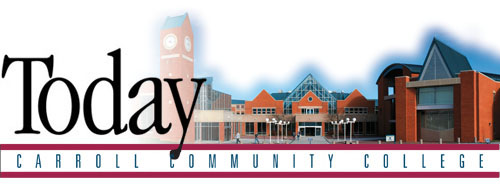
| Spring 2009, No. 41 |
|
ContentsStudents Gather in Annapolis for Student Advocacy Day Middle States Standards for Accreditation College Begins Preparation for Reaccreditation College to Study How RN Students Learn Basic Life Support Skills Register Now for Summer!Kids@Carroll Early Childhood Education Workers Pursuing a Degree Receive Assistance
|
| College Begins Preparation for Reaccreditation | ||
|
Carroll Community College has initiated a process of self-study in preparation for reaccreditation that will culminate in a team visit in 2011 by the Middle States Commission on Higher Education (MSCHE). Accreditation is a process of peer review that the educational community has adopted for its self- regulation. It is a voluntary process intended to strengthen and sustain the quality and integrity of higher education, making it worthy of public confidence. MSCHE examines the entire institution and how it meets a series of 14 standards. For its students to be eligible for federal grants through the Student Assistance Programs in Title IV of the Higher Education Act, the institution must have regional or national accreditation. Carroll was first accredited in 1996. Prior to 1996, the college was accredited as a campus of Catonsville Community College. College accreditation was reaffirmed in 2001. Five years later in 2006, the college submitted its Periodic Review Report to MSCHE. The 2011 visit represents the first visit in ten years by MSCHE. College President Dr. Faye Pappalardo has appointed a Steering Committee with workgroups composed of faculty and staff in anticipation of the visit. Dean of Student Affairs Dr. Michael Kiphart and Chair of Mathematics Rob Brown are co-chairs of the Steering Committee. Prior to joining Carroll in 2008, Dr. Kiphart was a vice president of MSCHE. “The reaccreditation process is a significant event for Carroll Community College,” said Kiphart. “It re-establishes that the institution has a mission that is appropriate to higher education, that it has the resources and personnel to realize that mission, and is successful in carrying it out.” “The team will review our mission, goals and objectives, and determine how we are achieving them,” said Kiphart. “This is an evidence-based evaluation. The visiting team will have a window to our campus,” said Kiphart. “We will be transparent and open through the entire review. The end product is like a ‘stamp of approval’ that we are fulfilling our mission.” “I’m excited to be working on the self-study,” said Robert Brown, chair of Mathematics. “This is an excellent opportunity for the college community to be introspective on its mission and the processes of the past, as we focus on the future,” he said. “We have the opportunity to examine the relevance of our mission and related long-range goals,” Brown said. “How do we assess the fulfillment of our mission and long-range goals? Are the assessments valid? Do we incorporate the results of our assessment efforts into all aspects of the college? The answers to these questions drive at the heart of whether we are truly effective in the college’s mission.” Seven work groups will examine 14 standards colleges must meet in order to be reaccredited. Student representatives are included in the process. The groups will design research questions and investigate them. A self-study report is then generated and submitted to MSCHE. “I am impressed with the caliber of individuals on our workgroups. They do admirable work. I expect a fine job from them,” Kiphart said.
Rob Brown
Dr. Michael Kiphart |
||

